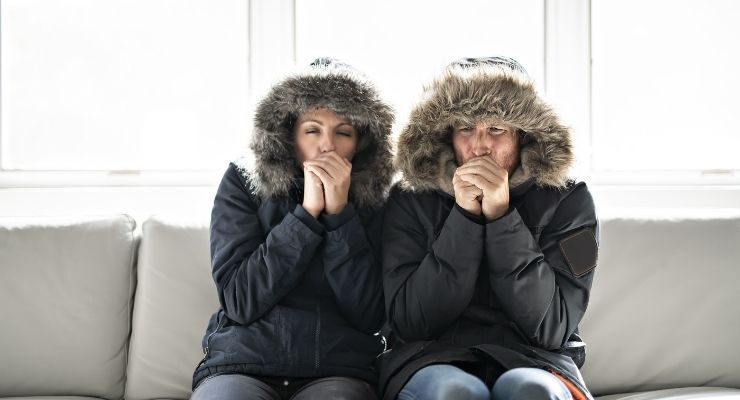
We all want to stay warm and cozy indoors this winter, but this may be harder for some homes than for others. If your home feels cold and drafty even after you adjust the thermostat, there’s usually a good reason for this — you just need to know where to look.
Keep reading to discover some of the most common reasons why your house may feel cold in the winter.
Air Filter Needs Replacing
First and foremost, check your air filter. If it’s been some time since you replaced it, this could be the cause of your cold house. An air filter collects dust, pollen and other allergens that float throughout your house, which can clog up the filter after a while. If the filter is too obstructed, your heating system might have difficulty dispersing warm throughout your home. This is one of the simplest and most common reasons for cold indoor temperatures.
Air Leaks
If you can feel a chill in the air indoors or if your home feels drafty, you likely have an air leak on your hands. Inspect the inside and outside of your home — you may be able to spot a gap in your siding, shingles or ductwork. If this is the case, you’ll need to properly fix the gap in your siding or other material. For serious leaks or damage, you may need to call in the professionals.
Old Insulation
Another common cause of cold indoor temperatures is a lack of sufficient home insulation. If your home’s insulation is old or faulty, it could be letting chilly air into your home and letting warm air escape. Having the proper insulation is key to staying warm in the winter because its heat-resistant properties keep heat trapped inside.
Adequate insulation even helps you save on your heating and energy bills, as you won’t have to reach for the thermostat as often. If your home is consistently cold in the winter, consider getting your insulation inspected.
Issues With Your Heating System
If you know your home is leak free with new insulation and you’re still feeling cold indoors, your heating system may be to blame. Call a professional contractor or technician to inspect your heating system for any leaks, damage or general issues. Your system may also not be strong enough to cover your entire house, in which case you may need to upgrade it.
If your home feels chilly this winter, use these reasons why your house may feel cold in the winter to identify and address the issue. The sooner you do so, the sooner you can get back to snuggling up to enjoy a cozy winter season indoors.



